SCIENCE
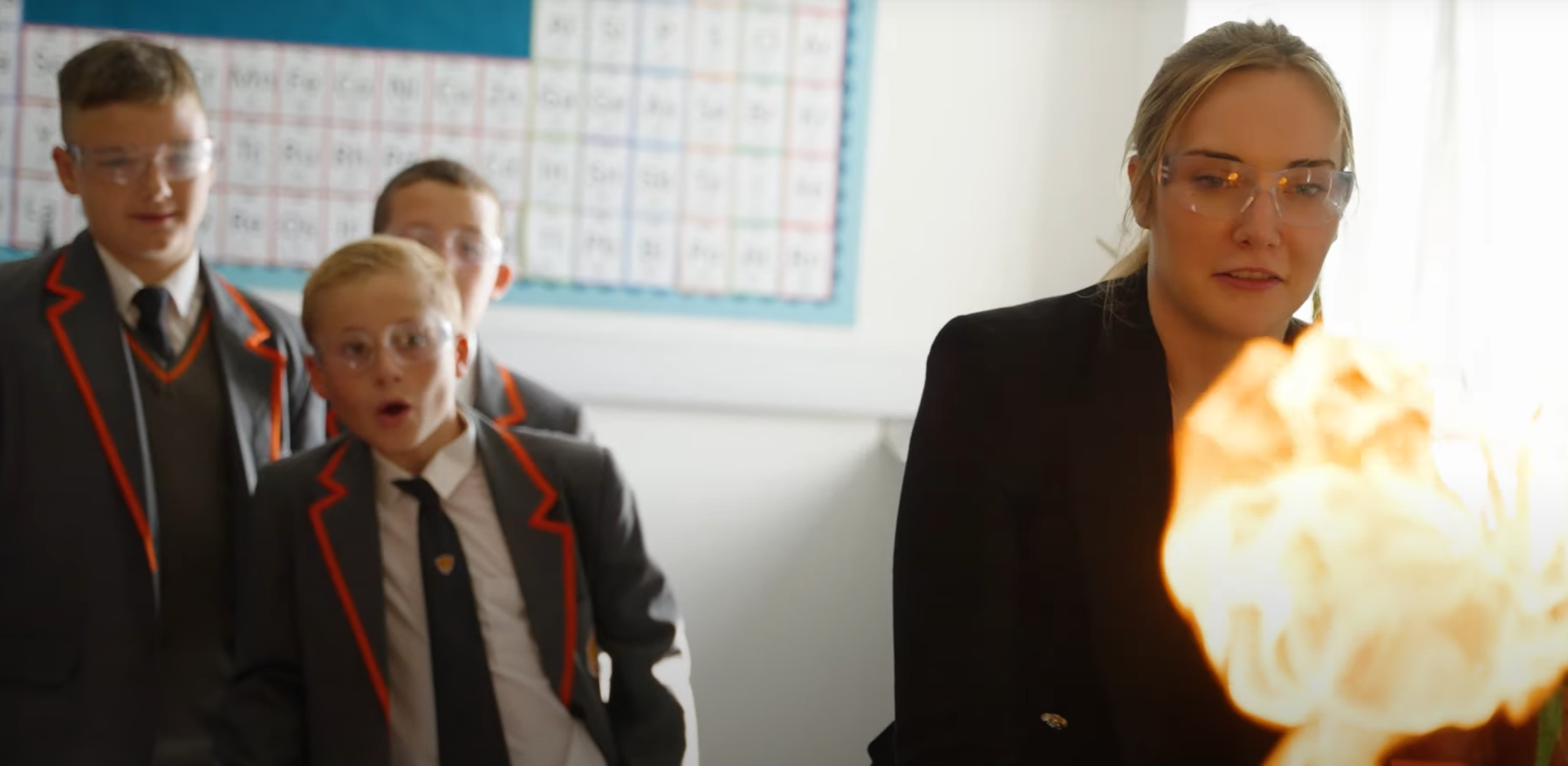
Department Vision
“Our aim is to encourage a life-long love of science, scientific enquiry and inspire the scientists of tomorrow. Whilst following an inclusive curriculum in a consistent environment of quality first teaching and mutual respect”
We aim to inspire the scientists of the future and encourage enquiry, thinking and exploration of the fundamental principles of science, through an appreciation of the world around them and the scientific advances that have led to our understanding today. Based on the national curriculum students’ knowledge will develop through gaining an understanding of the main themes of science interleaved across the key stages. This allows the progression from KS3-4 seamlessly and provides the skills needed to be successful in external examinations.
Year 7
Year 7
Key Stage 3.
Based on the national curriculum for science the education provides foundations for the understanding of the world, conceptual understanding, scientific enquiry and curiosity about natural phenomena. Students are encouraged to predict, explain and analyse. At the end of the first term in year students will be competent in basic experimental practices and all elements of safety with the laboratory. This is underpinned by 10 learning themes that are followed encompassing elements from the three disciplines: Biology, Chemistry and Physics. These include education on Forces, Organisms, Matter, Reactions, Electromagnets, Earth, Ecosystems, Waves, Genes and Energy. The science curriculum is based on a spiral curriculum and it is important that students make progress and embed their learning at each stage to allow the development of more complex ideas in KS4 and KS5.
Students should develop their scientific language and be able to understand the main key words used on a regular basis. They will be able to describe associated processes and key characteristics in the appropriate technical terminology. Their technical vocabulary will develop and expand as students’ progress from KS3 to KS4. Students will be able to apply mathematical knowledge to science to be able to collect, present, analyse data in quantitative and graphical formats. They will be able to have a fundamental understanding of social and economic implications of scientific discovery.
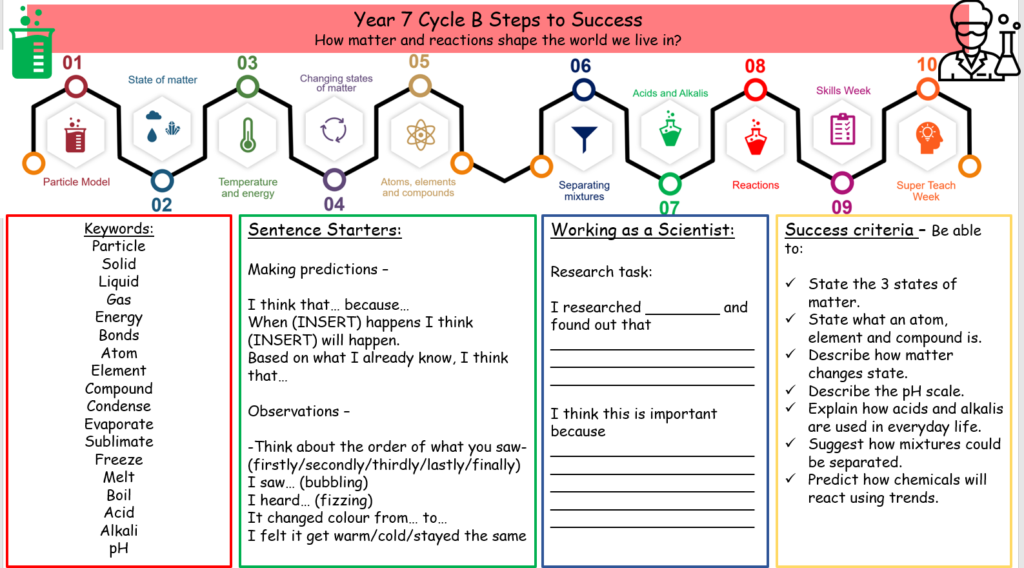
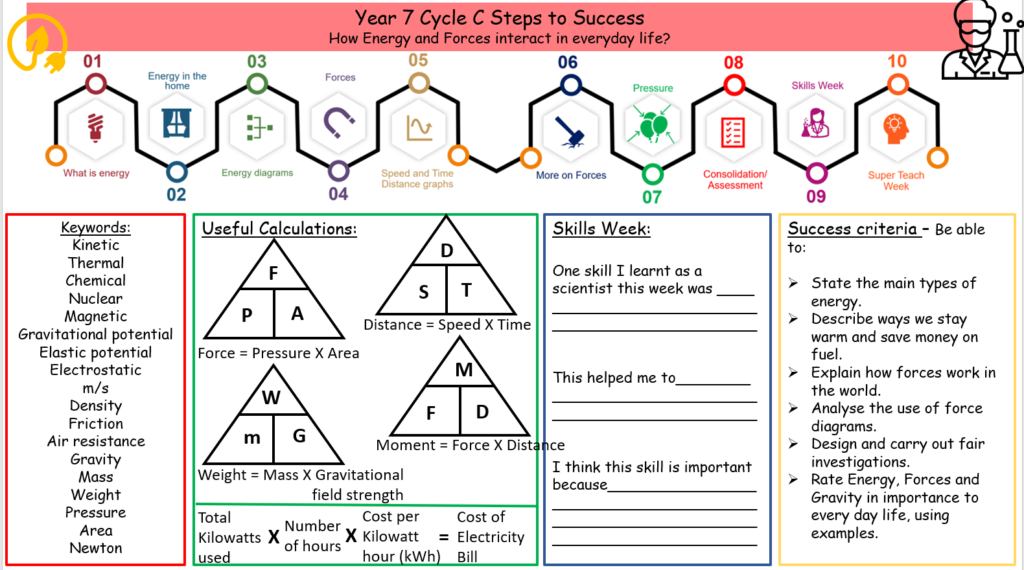
| Cycle A | Science Introduction, Genes, Organisms |
| Cycle B | Matter, Reactions |
| Cycle C | Forces, Energy |
| Cycle D | Earth, Survival on Mars project |
Year 8
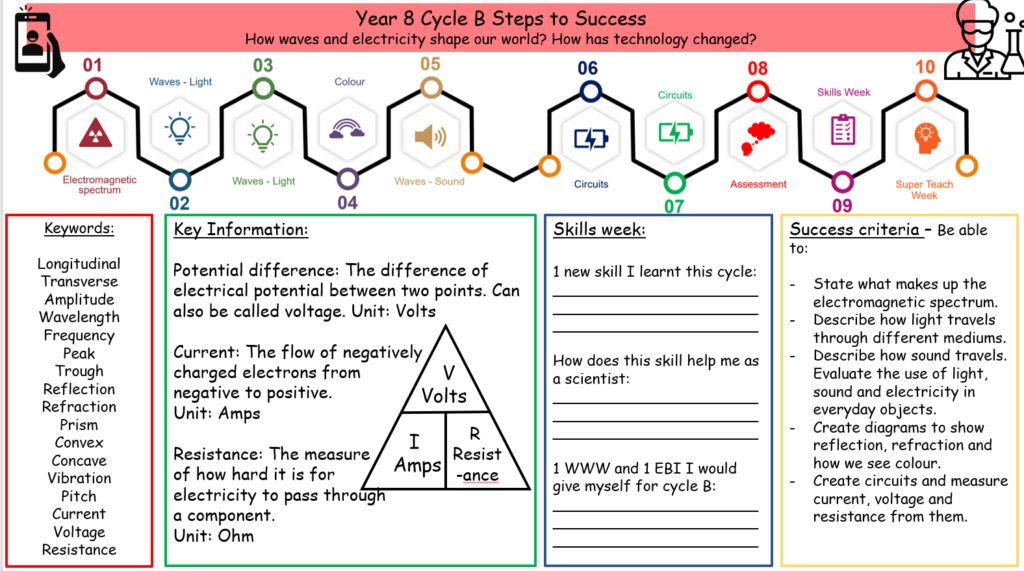
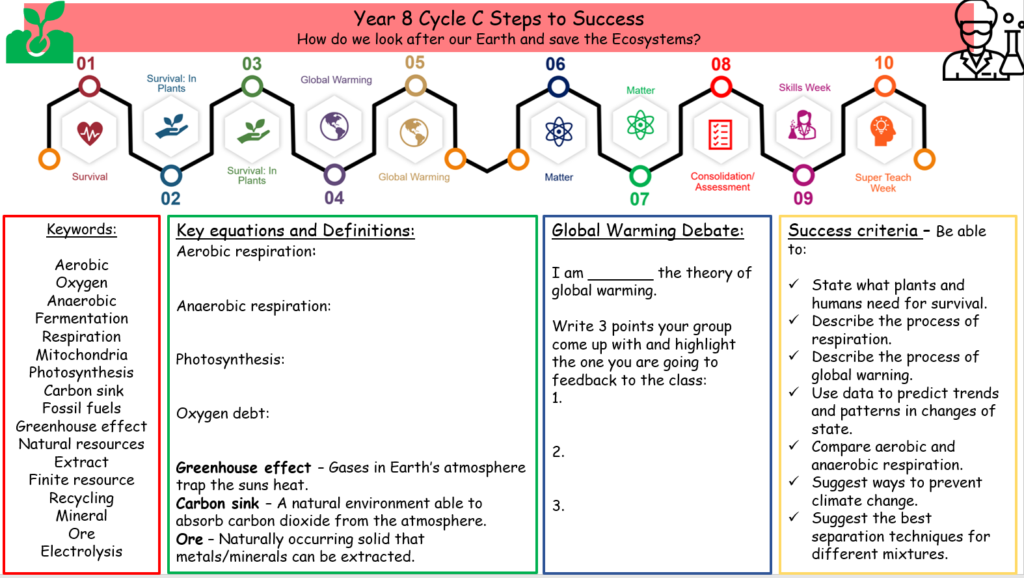
| Cycle A | Earth, Matter |
| Cycle B | Waves, Electromagnets |
| Cycle C | Ecosystems, Earth and Matter |
| Cycle D | Genes and Reactions |
Year 9
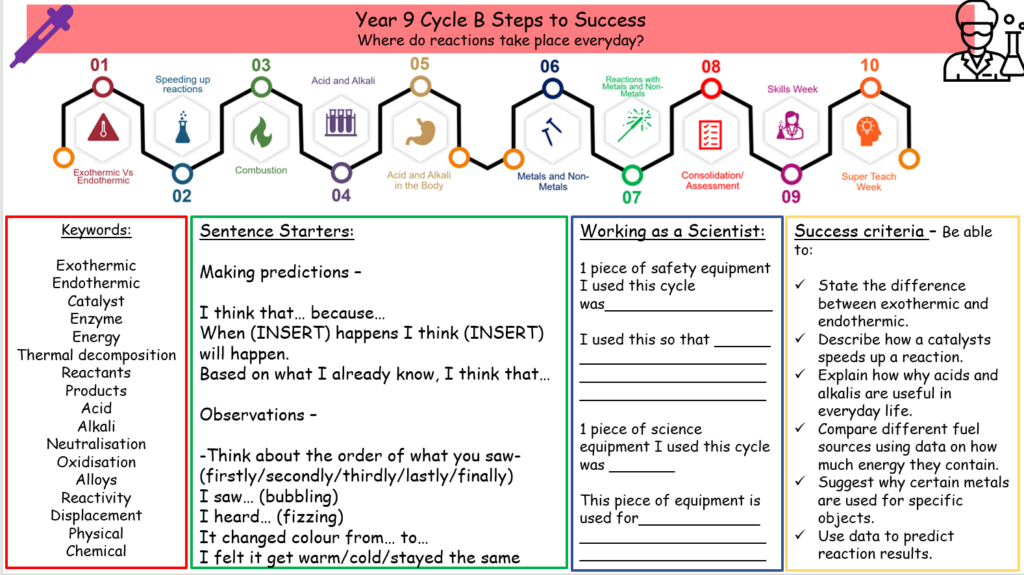
| Cycle A | Electromagnets and Energy |
| Cycle B | Reactions and Energy |
| Cycle C | Ecosystems and Organisms |
| Cycle D | Transition unit |
Years 10 & 11
Having gained competence from practice in KS3, the principal focus in key stage 4 is to deepen understanding of a variety of scientific ideas based on the concepts taught in KS3; Forces, Organisms, Matter, Reactions, Electromagnets, Earth, Ecosystems, Waves, Genes and Energy. Students should start to be able to make links and comparisons between different scientific disciplines and concepts. Students should be able to start to model conceptual ideas, develop ideas and evaluate explanations. Practical skills, mathematical nomenclature and scientific vocabulary will be developed and extended. Students should appreciate the scientific process and how scientific ideas are developed over time, taking into account new evidence and how explanations are modified in light of this. Students will be able to apply mathematical knowledge to science to be able to collect, present, analyse data in quantitative and graphical formats. Students will be able to evaluate results and determine what further investigation will be required.
Biology is the science of living organisms, their interactions with other organisms and the environment. This discipline involves interpreting information from the natural world. From their study of this discipline students will be able to understand the world around them and gain an insight into the complex and diverse phenomena of the natural world. The students will understand basic knowledge on the following: Cell biology, Transport systems, Health, disease and the development of medicines, Coordination and control, Photosynthesis, Ecosystems, Evolution, Inheritance and Variation.
Students will learn that the study of Chemistry is about the properties, composition, reactions and structure of matter. This discipline involves understating matter in terms of atoms, natural and man-made materials. Students will understand historical advances in chemistry and how this has led to current understand for examples with the development of the periodic table. The students will understand that basic knowledge of the following: Atomic structure and the Periodic Table, Structure, Bonding and Properties of Matter, Chemical Changes, Energy Changes, Rate and Extent of Chemical Change, Chemical and allied industries, Earth and Atmospheric science.
During the study of Physics students will develop understanding of concepts such as Particle structures, Force, Radiation and the Universe. Students should be able to model key ideas and explain how new technologies may have been invented. Students’ knowledge will come from the following areas: Energy, Forces, Motion, Waves, Electricity, Magnetism, Structure of Matter and Atomic Structure.
During the students KS4 scientific studies they will have the opportunity to follow the AQA Combined Science Trilogy course or AQA Separate Sciences course. This is an option that the students can choose.
Their assessment will consist of 6 papers, one for each of the disciplines they have studied. Two papers in Biology, two for Chemistry and two for Physics. The paper for the combined science is 1 hour and 15 minutes long and worth 70 marks. The paper for the Separate Sciences are 1 hour and 45 minutes long and worth 100 marks.
When revising, students should first focus on going over the facts using their notes, BBC bitesize, revision guides and practice from their Knowledge Organisers and in lesson tests. They should also look at the specifications for their topics found on the AQA website. There are also videos and information on Century to further support revision
Year 10
| TERM 1 | Cell Biology, Organisation, Atomic Structure, Elements and The Periodic Table. |
| TERM 2 | Infection and Response, Energy |
| TERM 3 | Bioenergetics and Bonding |
| TERM 4 | Particle Model and Quantitative Chemistry |
| TERM 5 | Electricity and Chemical Changes |
| TERM 6 | Ecology and Energy Changes |
Year 11
| TERM 1 | Forces, Variation and Evolution |
| TERM 2 | Organic/ Using Resources and Chemical Analysis |
| TERM 3 | Electromagnetism, Homeostasis and Forces 2 |
| TERM 4 | Genetics: Reproduction, Space Physics (Separate only), Waves: EMS and Evolution |
| TERM 5 | Rate and Extent of Chemical Change, Chemistry of the Atmosphere |
| TERM 6 | Revision and External Examinations |
Advice For Parents & Carers
Key Stage 4
Students will be studying for the examination board AQA and will either sit the Combined Science: Trilogy or the Separate Sciences, also known as triple science.
To support your son/ daughter please encourage them to use Century, their Knowledge Organisers and to read around the subject.
In addition, the following websites are invaluable to students. We encourage you to support your child to use them for independent studies:
- BBC Bitesize KS3 Science
- BBC Bitesize KS4 AQA Science



